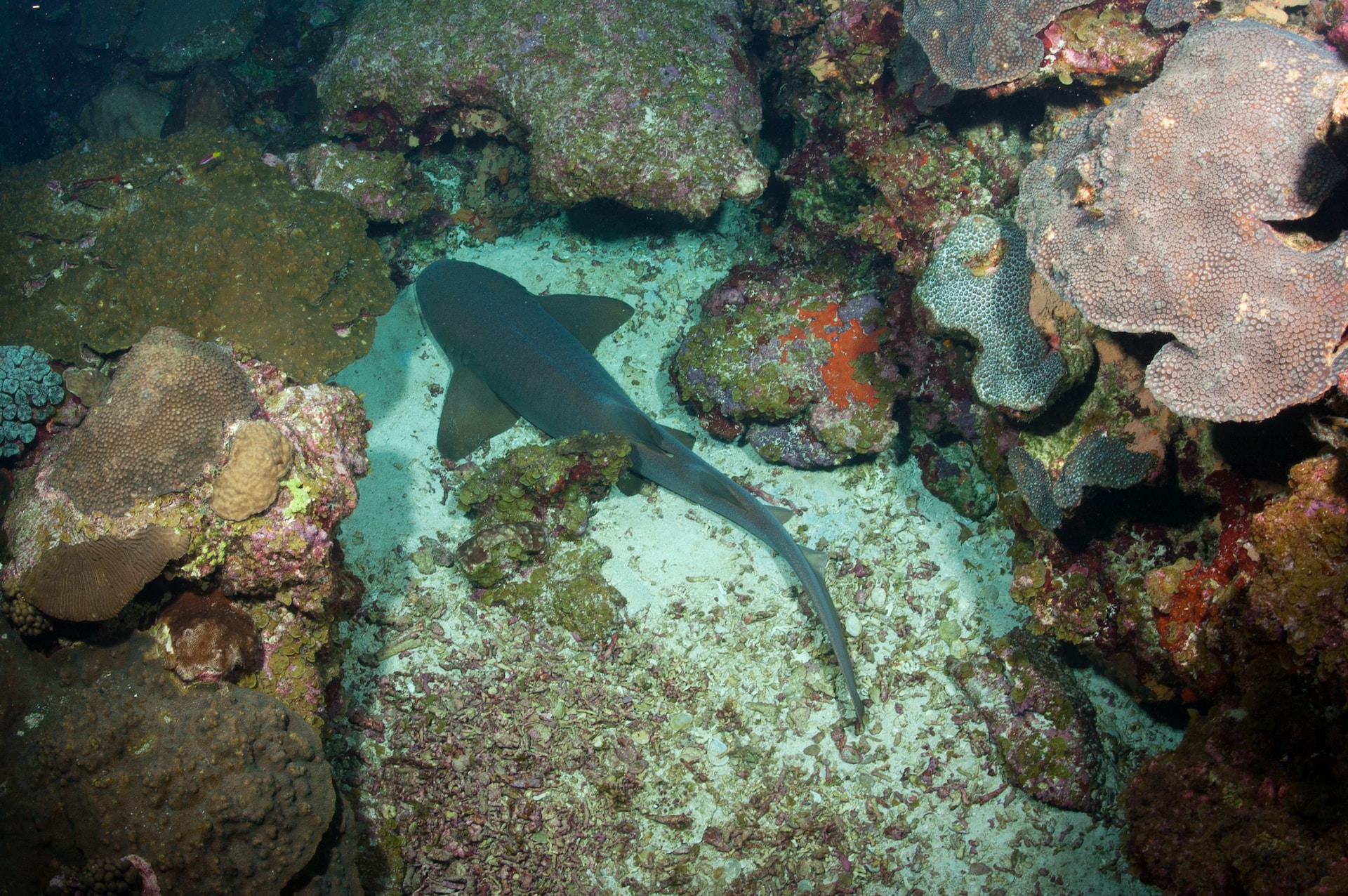The majestic dance of reef sharks weaving through vibrant coral gardens is not just a treat for the eyes. It’s a testament to the delicate balance of marine ecosystems. However, this balance is currently under threat due to overfishing and the impact of climate change. At the forefront of combating this environmental crisis is the Mote Marine Laboratory, tirelessly working to restore the intricate harmony of these marine habitats.
The Silent Crisis Underwater
Overfishing, driven by the growing demand for shark fin and other commercial interests, is depleting the population of reef sharks at an alarming rate. As apex predators, sharks play a vital role in maintaining the health and balance of marine ecosystems. Their decline can trigger a domino effect, leading to overpopulation of certain species and the eventual degradation of coral habitats.

Coral sharks are very important for maintaining the natural balance
Meanwhile, the escalating impacts of climate change – including rising sea temperatures and ocean acidification – are causing widespread coral bleaching, leaving corals vulnerable to diseases and eventual death.
Mote Marine Laboratory: A Beacon of Hope
Established in 1955, the Mote Marine Laboratory has grown into a leading marine research institution. Their holistic approach focuses not only on understanding the challenges faced by marine ecosystems but also on implementing tangible solutions.
Land and Offshore Coral Nurseries
One of the groundbreaking initiatives spearheaded by the laboratory is the establishment of land and offshore coral nurseries. These serve as ‘safe havens’ for young corals, providing them with optimal conditions to grow, away from the direct threats of the ocean.
Once matured, these nurtured corals are transplanted back to degraded reef areas, a process akin to reforestation in terrestrial environments. By doing so, the laboratory hopes to kickstart a natural recovery process.
Research by Activists
The importance of grassroots activism in driving conservation efforts cannot be overstated. Activists affiliated with the Mote Marine Laboratory play a pivotal role in this endeavor, conducting crucial research on-site.
These activists monitor the health and growth of corals within the nurseries, collect data on water quality, and track the movement and behavior of reef sharks using tagging techniques. The data they gather provides invaluable insights, guiding the laboratory’s efforts and shaping conservation strategies.
The Broader Impact
The work of the Mote Marine Laboratory extends beyond just coral and shark conservation. Healthy coral reefs act as natural barriers, reducing the impact of storm surges and preventing coastal erosion. By restoring these habitats, the laboratory is also indirectly safeguarding coastal communities from the adverse effects of climate change.
Additionally, vibrant coral habitats attract marine tourism, providing livelihoods to local communities and acting as a continuous reminder of the ocean’s wonders.
The Road Ahead
While the efforts of the Mote Marine Laboratory are commendable and have shown promising results, the challenges remain daunting. Overfishing and climate change are global issues that require coordinated international responses.
However, initiatives like those of the Mote Marine Laboratory serve as a beacon of hope. They exemplify how science, activism, and community engagement can come together to bring about tangible change, ensuring that future generations can still marvel at the beauty of reef sharks gliding through thriving coral habitats.
©globalgreenhouse.eu

